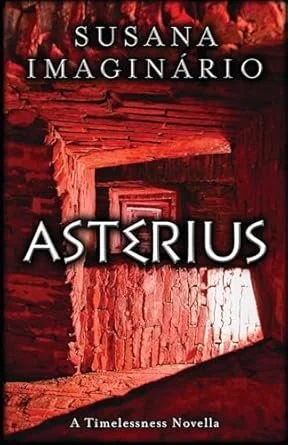Book Review: Asterius by Susana Imaginário
There are those rare moments when a book grips makes you lose yourself within its pages. Asterius by Susana Imaginário is one such book. It’s a book that demands savouring, and, in this case, reflection.
This novella is a retelling of the myth of Theseus and the Minotaur (right up my alley as I love anything ancient Greece related), but this book provides a unique twist and nothing is quite what it seems. Instead of the familiar story of a hero slaying a monster in the labyrinth, we are given Asterius himself—the Minotaur—as our narrator. And through his eyes, the tale takes on an entirely different meaning.
From the very first line of the book’s blurb—"My name is Asterius, yet I have never seen the stars."—Imaginário immerses us in the tragic, bitter, and introspective world of a being who has been cast as a monster but yearns for something more. Asterius’ voice is laced with wit, sorrow, and a dry, almost fatalistic humour that makes him more human than the supposed heroes of the tale.
Imaginário, delivers prose that is rich and layered, weaving together philosophy, mythology, and existential dread with effortless precision. Asterius is not just a beast locked in a labyrinth—he is a product of gods and men, a symbol of cruelty, a pawn in a much larger game. He questions his own nature, his origins, and the roles forced upon him by both mortals and immortals alike.
One of the novella’s greatest strengths is the interaction between Asterius and Theseus. Their exchanges are tense, filled with sharp dialogue and thought-provoking moments that reframe the classic narrative of hero versus monster. Theseus, far from the idealised warrior, is depicted as ruthless, calculating, and disturbingly hollow—an inversion of the mythic hero archetype that makes for a fascinating contrast with Asterius’ reluctant monstrosity.
There’s also humour—sly, biting, and occasionally dark. The labyrinth is not just a physical prison but a metaphorical one, and the more we learn about Asterius, the more we see how he has been shaped (and misshaped) by the gods’ games and humanity’s fears.
While Asterius is part of Imaginaro’s wider Timelessness series, it stands alone, offering a fresh take on an ancient legend while fitting seamlessly into the wider arc of the series. It leaves readers pondering not just the fate of the Minotaur but the very nature of stories, power, and the arbitrary lines that define heroism and monstrosity.
A brilliant, absorbing, and utterly compelling story, Asterius is a labyrinth of its own—one that readers will want to lose themselves in again and again. Buy it!


